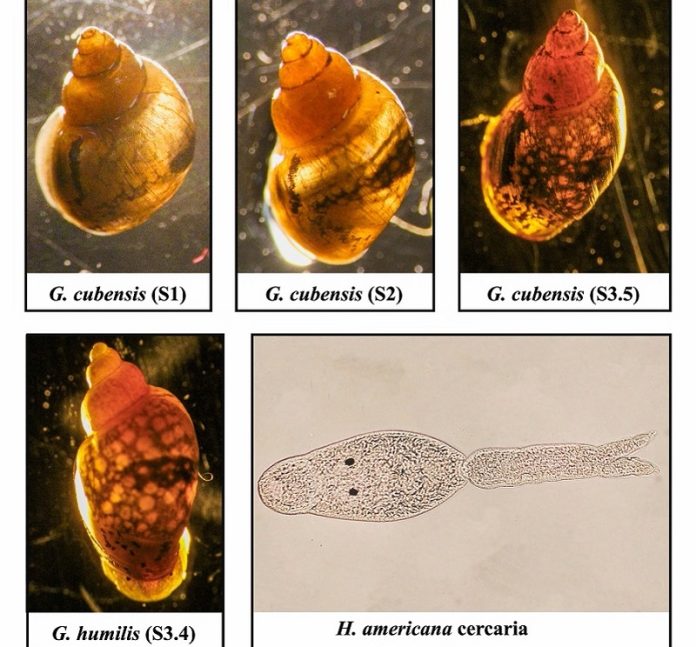
For the first time, scientists have discovered a dangerous parasite in the Colorado River that could be fatal to dogs.
The parasite, known as the liver fluke or Heterobilharzia americana, has been identified far from its usual home in Texas and the Gulf Coast, right in Southern California.
Adler Dillman, a professor at UC Riverside, is raising the alarm for pet owners who enjoy the river with their furry friends.
After investigating sick dogs in the area, Dillman’s team found that the parasite is being spread by snails in the river, posing a risk to dogs swimming or drinking from these waters.
The liver fluke can severely affect a dog’s liver and intestines, leading to a condition called canine schistosomiasis.
This illness is not just dangerous; it can be deadly. The team’s research involved collecting over 2,000 snails from the river’s banks and using DNA tests to confirm the presence of both the snails and the flatworm.
Surprisingly, they found two types of snails that could carry and spread the parasite, both actively releasing the worms into the river.
The flatworm needs to find a mammal host, like a dog or raccoon, within 24 hours of emerging from the snail.
Once inside its host, the worm matures and reproduces, causing serious health issues.
The real danger comes from the worm’s eggs, which lead to organ failure as the dog’s immune system forms hard clusters in an attempt to fight the infection.
Symptoms of the disease start subtly, with a loss of appetite, but can escalate to vomiting, diarrhea, significant weight loss, and liver disease.
Since 2019, 11 dogs across three counties in California have been diagnosed with this disease, and tragically, one has passed away.
Health officials are urging dog owners to be vigilant. If your dog shows any of these symptoms after being in the Colorado River, a simple fecal test by your veterinarian can confirm if the liver fluke is to blame.
Treatment involves multiple medications and careful veterinary supervision.
It’s important to note that while this parasite can cause a rash in humans, known as swimmer’s itch, it does not infect humans like it does animals.
Additionally, there’s no need to worry about the parasite contaminating urban drinking water supplies.
These worms can be easily filtered out with standard water purification methods. However, drinking directly from the river is not recommended due to the presence of other harmful viruses, bacteria, and parasites.



